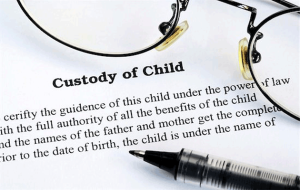New Jersey’s New Car Seat Law Aims to Clear Up Confusion for Parents
Statistics show seat belts help save lives in accidents and that message seems to have made an impact. Reports state a majority of people – 87% nationally and 87.6% in New Jersey – use seat belts for their protection. But how do you protect young children?
 Seat belts offer insufficient protection for infants and toddlers so the law requires the use of car seats and/or booster seats. Unfortunately, about two-thirds of parents use car seats incorrectly, according to the American Academy of Pediatrics (AAP). The AAP offers guidelines for switching children from rear-facing car seats to front-facing seats and from car seats to booster seats but only about 23% of parents nationally follow these guidelines. State laws and car seat manufacturers offer their own guidelines which, in some cases, conflict with those offered by the AAP. This conflict can result in confusion, causing the incorrect use.
Seat belts offer insufficient protection for infants and toddlers so the law requires the use of car seats and/or booster seats. Unfortunately, about two-thirds of parents use car seats incorrectly, according to the American Academy of Pediatrics (AAP). The AAP offers guidelines for switching children from rear-facing car seats to front-facing seats and from car seats to booster seats but only about 23% of parents nationally follow these guidelines. State laws and car seat manufacturers offer their own guidelines which, in some cases, conflict with those offered by the AAP. This conflict can result in confusion, causing the incorrect use.
Last month, New Jersey lawmakers took steps to alleviate this confusion by adopting a new car seat law that includes age and height requirements more closely in line with AAP guidelines. To learn how to properly use car seats and booster seats under New Jersey’s new law, read “The Big Changes to the NJ Car Seat Law: What You Need to Know.”
 New Jersey Family Law Blog
New Jersey Family Law Blog








 President Barack Obama last week signed into law the Sean and David Goldman International Child Abduction Prevention and Return Act providing more governmental support to American parents who are embroiled in international legal battles to regain
President Barack Obama last week signed into law the Sean and David Goldman International Child Abduction Prevention and Return Act providing more governmental support to American parents who are embroiled in international legal battles to regain 
 It took more than 30 years, but New Jersey lawmakers may have finally reached a compromise that satisfies both adoptees’ right to know and their birth parents’ right to privacy. That compromise is the basis for a bill which, last week, won conditional approval from Gov. Chris Christie, and now awaits final approval by both the State Senate and Assembly next week. (1)
It took more than 30 years, but New Jersey lawmakers may have finally reached a compromise that satisfies both adoptees’ right to know and their birth parents’ right to privacy. That compromise is the basis for a bill which, last week, won conditional approval from Gov. Chris Christie, and now awaits final approval by both the State Senate and Assembly next week. (1)